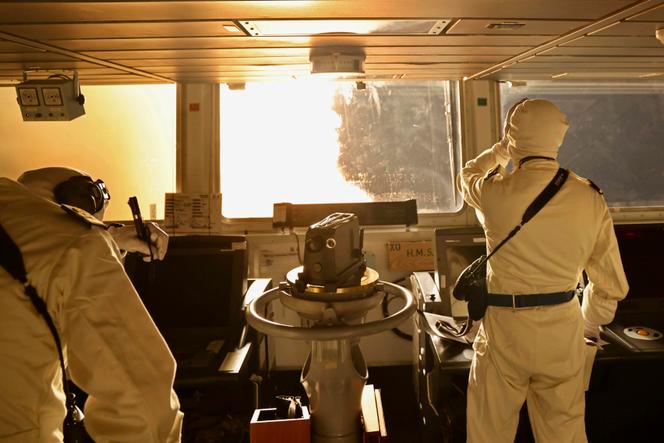


After challenging the United States in the Red Sea for several weeks, Houthi forces could have expected a military response. It was unleashed on the night of Thursday, January 11. US naval and air forces, backed by the British, struck a series of targets belonging to the Houthi rebels, allies of Iran in the Middle East. Their intervention marks a further regionalization of the conflict between Israel and the Palestinian Hamas in the Gaza Strip, which Washington is keen to avoid.
US Air Force command in the region said it had hit more than 60 targets at 16 sites, including radar, missile and drone launch sites. Explosions were heard in Sanaa, Taez and the port of Al Hudaydah. The installations enabled the Houthis to carry out 27 attacks against commercial vessels in the Red Sea, damaging the interests of some 50 nations and disrupting maritime traffic, which is essential to the global economy.
"America and Britain will undoubtedly have to prepare to pay a heavy price and bear all the dire consequences of this blatant aggression," warned Houthi Deputy Foreign Minister Hussein Al-Ezzi on Friday. Five people were killed and six wounded in the strikes, according to local authorities. The Houthis have vowed to continue their attacks against "Israeli ships or those heading for ports in occupied Palestine," wrote their spokesperson Mohamed Abdel Salam on X.
The Houthis claim to be acting out of solidarity with Gaza and to be seeking an end to the Israeli military operation in the Palestinian enclave. "This is totally unfounded and illegitimate," assured a senior US official. The bulk of their maritime targets have nothing to do with the players in the current war. Their latest operation, on January 9, was the most intense, firing 18 missiles and three drones against ships – including one containing fuel oil. The missiles were destroyed by three US destroyers, fighter jets and the British ship HMS Diamond.
The limited strikes do not neutralize the threat posed by the rebels. But they had become inevitable. Initial clashes took place on December 31, 2023, between the Houthis and the US army, which intervened to prevent an attack on a merchant ship off the coast of Al Hudaydah, leaving 10 Houthis dead.
The following day, Joe Biden brought together the most senior civilian and military officials in the US security apparatus to consider all options in the face of the actions of Houthi forces. On January 3, the US issued a joint statement with a dozen countries, calling their attacks in the Red Sea "illegal, unacceptable and profoundly destabilizing." It was a solemn and final warning, ahead of military retaliation. But the Houthis were hardly deterred by the message, any more than they had been by the formation, on December 18, 2023, of an alliance bringing together over a dozen countries called Operation Prosperity Guardian.
You have 60% of this article left to read. The rest is for subscribers only.
